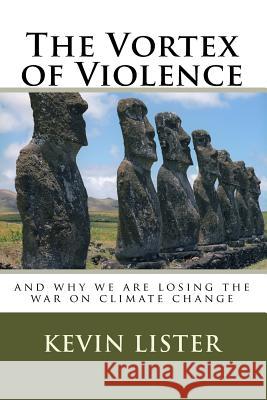The Vortex of Violence: and why we are losing the war on climate change » książka
The Vortex of Violence: and why we are losing the war on climate change
ISBN-13: 9781507662670 / Angielski / Miękka / 2015 / 252 str.
As the world moves towards the abyss of climate change and the evidence of catastrophe solidifies by the day, international agreements and government actions continue to fall far short of what is needed. The empirical evidence unambiguously tells us we have little more than 10 years to make the most profound and difficult changes to our society that will surpass anything from our past. Instead, humankind wraps its arms around the climate change disaster in a suicidal embrace. The Vortex of Violence strips away the wishful thinking on climate change that has hindered the dialogue that is needed to explore the structural failures that are halting progress. It argues that talk about ambition to tackle climate change is irrelevant; the only thing that really counts is having security to move to a zero carbon economy and the biggest security threat of all is nuclear weapons. Like the failures on climate change, nuclear non-proliferation talks have also failed with the same regularity. Despite the climate change crisis facing us, the world's nuclear weapons states are collectively embarking on one of biggest upgrades of nuclear weapons systems ever. For this, they need expanding industrial economies to raise the taxes as well as maintaining huge high carbon military industrial complexes in permanently operational states. This is the antithesis of what is needed to tackle climate change. It drives the most fundamental illogicality of all - building weapons of mass destruction that will outlast the societies that they are supposed to protect by their guarantee of mutual destruction. The Vortex of Violence makes the provocative, but unavoidable, argument that to achieve the scale of change that we must face when the planet is being made more unstable by the day due to the effects of climate change, resource shortages and the uncontrollable impacts of technology, then nuclear weapons and climate change talks must be integrated. If we do not do this, our chance of survival is less than selecting a single atom at random from all the atoms that make the planet. It leads to far reaching and uncomfortable conclusions about the entire political systems that have evolved to govern us and which drive the problems we collectively face.
Zawartość książki może nie spełniać oczekiwań – reklamacje nie obejmują treści, która mogła nie być redakcyjnie ani merytorycznie opracowana.











